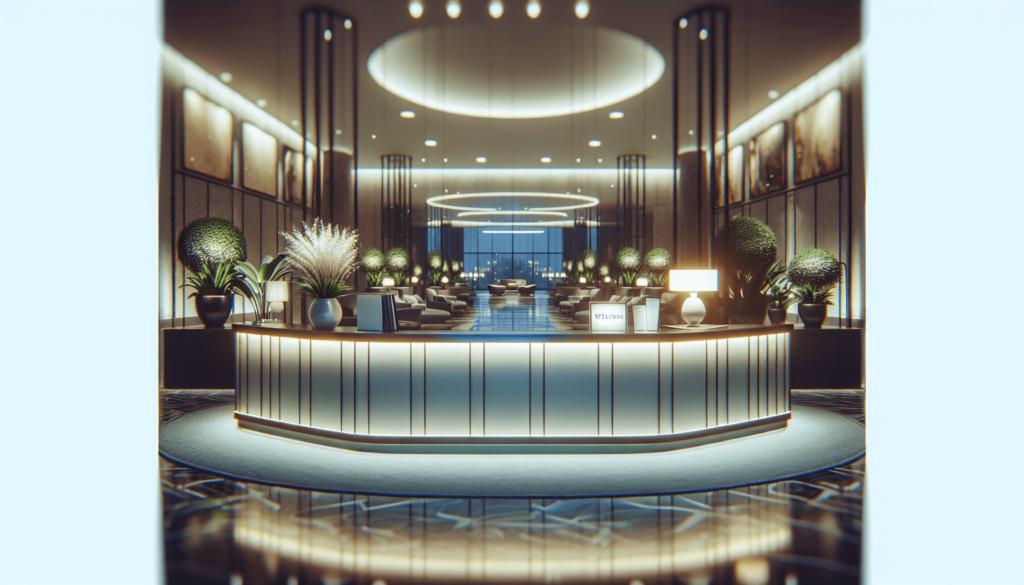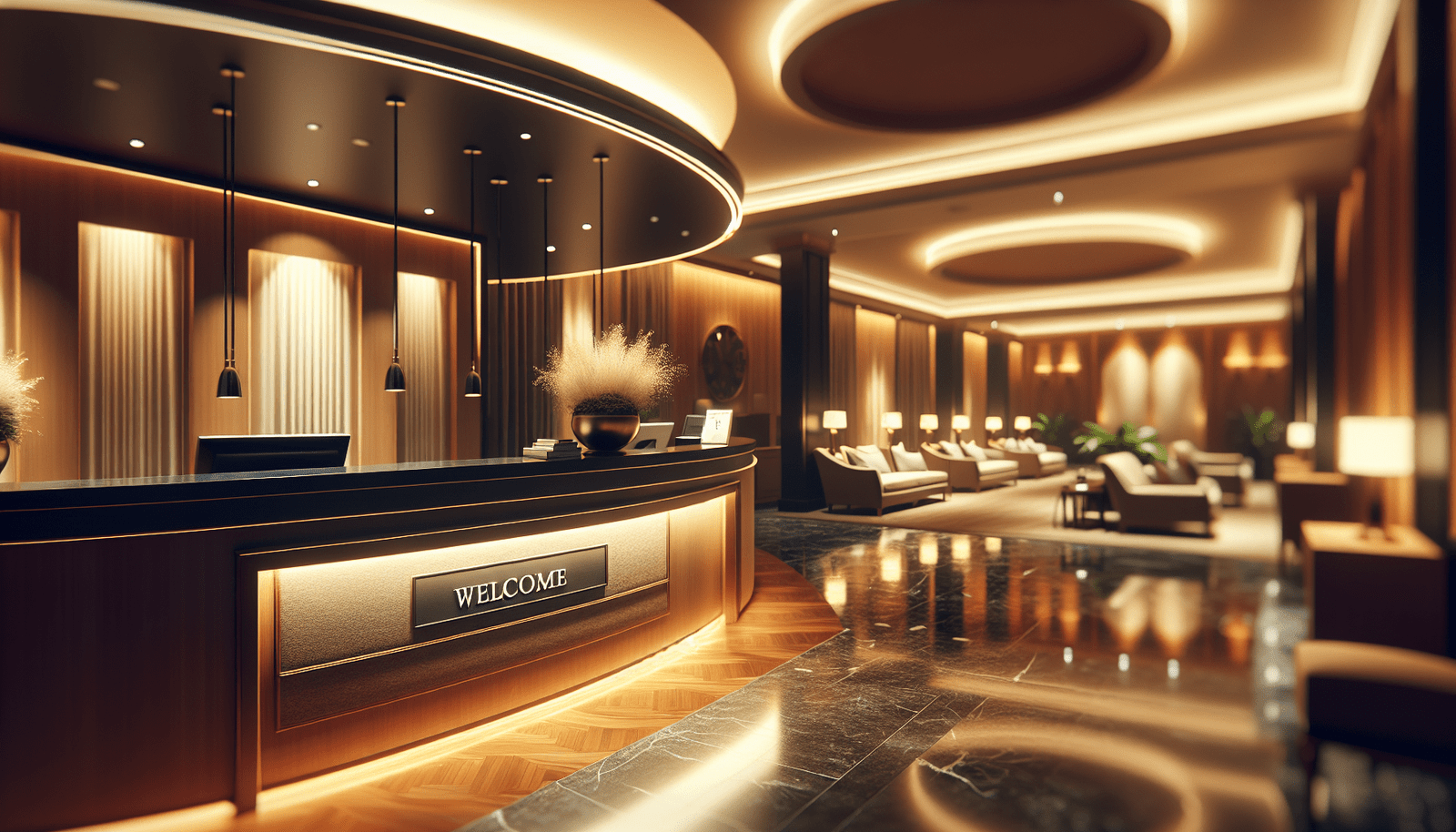What does it mean to ensure the safety of your guests while also protecting your reputation in the hospitality industry? This question isn’t just about providing excellent service; it’s about navigating the delicate balance between offering a memorable experience and safeguarding against liabilities. Having the right liability insurance coverage can make all the difference. Let’s break down this essential aspect of your business.
Understanding Liability Coverage
Liability coverage in the hospitality industry serves as a safety net. It primarily protects you against claims arising naturally from accidents, injuries, or negligence that may occur on your premises. Understanding the nuances of liability coverage not only helps protect your guests but also fortifies the reputation of your establishment.
The Importance of General Liability Insurance
General liability insurance is a critical factor for any hospitality business. This type of coverage often includes bodily injury, property damage, and personal injury liability. If a guest suffers an injury during their stay or at an event hosted by your establishment, general liability insurance helps cover medical costs and legal expenses. You want your guests to feel safe, but accidents can happen.
| Coverage Type | What It Covers |
|---|---|
| Bodily Injury | Claims for injuries to guests that occur on your property. |
| Property Damage | Damage caused by your operations to a guest’s property. |
| Personal Injury | Claims for defamation, false arrest, or other personal grievances. |
Protecting Your Reputation
In the hospitality industry, reputation is everything. A single incident can lead to reviews that influence potential customers. If a guest has a bad experience—whether they were injured or their property was damaged—your business could face backlash. Liability coverage acts as an essential shield to prevent this from affecting your reputation in the long run.
The Evolution of Professional Liability Insurance
Like any other aspect of the hospitality business, liability insurance has evolved significantly over time. Once a somewhat basic need, it has become more tailored and nuanced, addressing various sectors within the hospitality industry.
From Basic to Comprehensive Coverage
Historically, liability insurance was more generic. It wasn’t uncommon for policyholders to find gaps in their coverage when they needed it most. Today, you will find specialized policies that cater specifically to different aspects of the hospitality industry, ensuring that you have the right protection against unique risks.
| Coverage Type | What It Covers |
|---|---|
| Professional Services | Claims related to service failures or negligence. |
| Misrepresentation | Claims that involve misleading information provided to clients. |

How Professional Liability Insurance Differs from General Liability
While both general and professional liability insurance are crucial, they serve different purposes. Understanding the distinctions can help you choose what your business actually needs.
General Liability vs. Professional Liability
General liability covers bodily injuries and property damage occurring on your premises. In contrast, professional liability is more focused on protecting against claims arising from professional services and advice provided to clients.
| Feature | General Liability | Professional Liability |
|---|---|---|
| Coverage Focus | Bodily injury, property damage | Service-related claims and negligence |
| Example Claims | Slip and fall accidents | Claims arising from poor service delivery |
| Target Audience | General business owners | Service professionals in hospitality |
The Role of Professional Liability in Business Continuity
Have you considered how professional liability insurance plays into your business continuity plan? It can be a significant element of maintaining operations during times of crisis.
Protecting Against Business Disruption
When accidents occur, they can cause significant financial strain, threatening your ability to operate. Proper coverage means that you can manage unexpected incidents without jeopardizing your business. This is vital for maintaining your operation, especially in a sector where reputation directly ties to revenue.
Evaluating Your Need for Professional Liability Coverage
Not every hospitality business is the same, and neither are your liability needs. Evaluating your operations will help you understand your requirements better.
Key Factors to Consider
-
Nature of Services Provided: If your business involves high-stakes services like event planning or catering, your exposure to claims is higher.
-
Client Relationships: Consider the risk involved when dealing with diverse clientele, as high-profile events may raise liability stakes.
-
Industry Standards

Tailoring Liability Insurance for the Tech Industry
As technology plays a more significant role in hospitality, unique risks arise that require tailored coverage.
Evolving Needs in Technology
With the integration of advanced tech solutions—from booking engines to AI-driven customer service—hospitality businesses face new liabilities. A cyber breach at one of your systems could not only lead to financial losses but also breach customer trust, making it imperative to secure the right coverage.
Professional Liability Needs for Healthcare Providers
Healthcare providers within the hospitality field face a unique set of liabilities when delivering health-related services.
Liability in Hospitality and Health
Whether it’s a spa service or health consultations at a wellness retreat, ensuring your liability coverage extends to professional services is essential. Medical malpractice claims can occur even in hospitality environments.
| Coverage Type | Healthcare Providers Should Consider |
|---|---|
| Malpractice Insurance | Protects against claims of negligence in care. |
| Essential for wellness services and consultations. |
Insurance Challenges in the Construction Sector
For hospitality businesses in construction or renovation, ensuring adequate coverage becomes even more critical.
Navigating Construction Liabilities
Accidents during renovations can lead to significant claims. Understanding your insurance needs while managing construction projects can mitigate risks related to injury or property damage.

Legal Professionals: Unique Insurance Considerations
Legal professionals engaged in the hospitality sector face unique insurance challenges as well.
Comprehensive Coverage Needs
From contract disputes to negligence claims, having comprehensive coverage is paramount for legal advisors in the hospitality realm.
| Coverage Type | Legal Considerations |
|---|---|
| Protects against negligence in provided advice or services. | |
| General Liability | Covers physical risks associated with hospitality operations. |
Managing Financial Risks
The Impact of AI on Professional Liability Policies
As the hospitality industry increasingly adopts AI technologies, you need to understand how this affects your liability insurance.
New Risks and Opportunities
AI can lead to efficiencies in service delivery but may introduce potential failures too. Liability insurance needs to adapt to cover any network failures or service errors stemming from these technologies.

Cybersecurity Threats and Their Influence on Insurance Needs
Given that hospitality businesses are prime targets for cyber attacks, understanding the implications for liability insurance is important.
Protecting Personal Data
With guests sharing personal information, your liability insurance must extend to cover data breaches and associated claims. Invest in cybersecurity insurance that complements your existing liability coverage.
How Climate Change Affects Liability Risk Assessments
Climate change may seem distant, but its effects can impact your business in the hospitality sector.
Adapting to New Environmental Risks
Changing weather patterns can lead to increased risk of property damage or even evacuation of guests. Being proactive about this risk in your liability insurance and management strategies is vital.
Social Engineering: A Growing Concern for Insurers
In the hospitality field, the human factor remains pivotal. Social engineering attacks can compromise guest safety and lead to liability claims.
Training and Awareness
Regular training for you and your staff on recognizing and dealing with social engineering attempts can greatly reduce potential liabilities.

Navigating the Hard Market in Professional Liability
Market fluctuations can affect liability insurance availability and pricing. Knowing how to navigate these changes will keep your business well-protected.
Strategies for Stability
- Build Strong Relationships with Insurers: Establishing connections with your insurance providers can lead to better rates and coverage options.
- Review Your Coverage Regularly: Stay proactive in assessing your needs and adjusting your policies as necessary.
Lessons from High-Profile Professional Liability Lawsuits
History provides invaluable lessons. Reviewing past high-profile lawsuits can offer insight into potential risks and coverage gaps in your business.
Learning from Mistakes
A careful examination of these cases can help prevent similar situations in your hospitality business. Neither reputation nor finances are worth risking due to negligence or unpreparedness.
How Large Corporations Manage Their Liability Risks
Many large corporations in the hospitality industry approach liability coverage strategically. Understanding their methods can offer valuable approaches for your business.
Risk Mitigation Strategies
- Comprehensive Risk Assessments: Regular evaluations of your operations can help mitigate potential liabilities.
- Investing in Training: Employees must understand their roles in minimizing risks and enhancing guest safety.
Case Study: Successful Claims Mitigation Strategies
Real-world examples can inspire your own strategies for claims mitigation.
Sharing Effective Techniques
A hospitality business that experienced a claim might adopt extensive employee training, emphasizing safety protocols and regular safety audits to minimize risk exposure.
| Case Element | Strategy Implemented |
|---|---|
| Guest Injury Claim | Implemented comprehensive staff training for safety. |
| Cyber Breach | Adopted a robust cybersecurity framework. |
The Financial Impact of Negligence Claims on Small Businesses
For small businesses, a negligence claim can have catastrophic financial effects. Understanding this can motivate your commitment to adequate liability coverage.
Protecting Your Bottom Line
Being proactive in securing the right liability coverage protects not only your guests but your financial health as well.
Analyzing real-world cases helps clarify the necessity of errors and omissions insurance.
Case Highlights
- Catering Service Issue
- Event Planning Breach
A Step-by-Step Guide to Filing a Professional Liability Claim
If you find yourself in a position of needing to file a claim, knowing the process can streamline the experience.
Key Steps to Follow
- Document Everything: Gather all relevant information, including communications and contracts.
- Notify Your Insurer: Familiarize yourself with the process your insurer has in place for claims filing.
- Follow-Up Appropriately: Stay in touch with your insurer to keep your case moving smoothly.
Important Considerations
- Coverage Limits: Ensure that the limits align with the risks associated with your services.
- Exclusions: Be aware of what the policy does not cover to avoid unexpected disappointments.
Knowing the ins and outs of your policy limits and deductibles can enhance your preparedness.
Balancing Coverage and Costs
A higher deductible might reduce your premium costs but could expose you to greater financial risk in case of a claim. Find a balance that suits your business model.
Tips for Negotiating Better Terms with Your Insurer
Establishing a favorable relationship with your insurance provider is crucial for successful negotiation.
Striving for Success
- Do Your Research: Understand industry benchmarks and use that information in your discussions.
- Prepare Your Case: Clearly present your business model and risks to support your request for coverage adjustments.
How to Educate Employees About Liability Risks
Training your employees is necessary. They need to understand the liability risks inherent in your hospitality business.
Creating Awareness and Protocols
- Regular Training Sessions: Incorporate training focusing on safety and liability into your employee onboarding processes.
- Maintain Open Communication: Encourage employees to report any concerns or potential risks they see.
Exploring Niche Markets for Professional Liability Coverage
Some hospitality sectors have unique needs that may require specialized liability insurance.
Customizing Policies
From specialty catering services to boutique hotels, businesses in niche markets should seek policies that reflect their particular risks and client interactions.
Creating a Culture of Risk Awareness
Establishing an organization-wide culture of risk awareness can significantly reduce liability risks.
Strategies to Foster Awareness
- Regular Risk Assessments: Conduct these assessments to identify potential liability areas continuously.
- Promote a Speak-Up Environment: Encourage employees to voice concerns and suggestions about potential risks.
Conclusion
Choosing the right liability coverage in the hospitality industry ensures that you protect both your guests and your business reputation. As you navigate the complex world of liability insurance, remembering the key factors will guide you in creating a safe and secure environment. Having well-defined liability policies not only protects your assets but also fortifies the experience you provide, allowing your guests to enjoy their time with peace of mind. When everyone feels secure, your guests’ overall experience positively contributes to your establishment’s high standards and lasting reputation.
